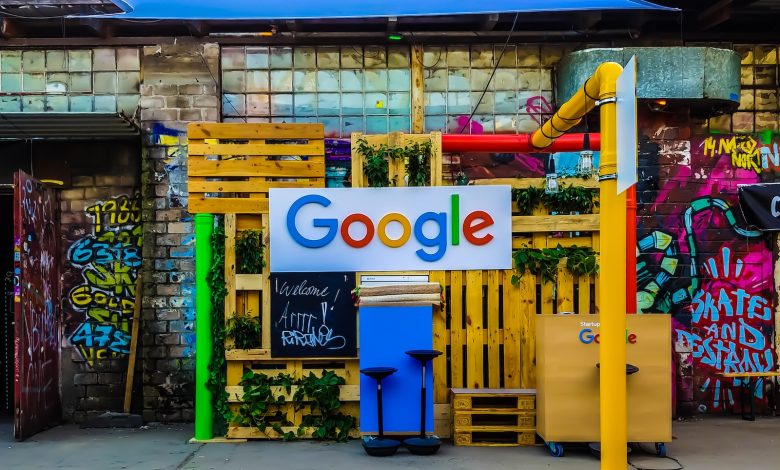
Table of Contents
Introduction of Project Gemini
In an ambitious foray into the burgeoning field of artificial intelligence (AI), Google has unveiled its latest innovation dubbed Project Gemini. This highly advanced AI model is designed to mimic human-like behaviors, marking a significant evolution in the capabilities of machine learning. With Project Gemini at the forefront, Google aims to transform the landscape of AI, boosting the user experience across its various applications and devices.
Launch and features of the AI model
Project Gemini made its debut on a Wednesday, signaling Google's commitment to staying at the pinnacle of AI research and development. It's envisioned as a sophisticated system that will enable more nuanced and intelligent interactions between users and technology. One of the defining traits of Project Gemini is its phased approach to rollout. The technology is being gradually integrated into products and services to ensure optimal functionality and user interface design.
Integration with Google’s Bard chatbot and Pixel 8 Pro
The initial phases of Project Gemini include the introduction of "Nano" and "Pro" models, which serve as precursors to the full-fledged "Ultra" version anticipated in the coming year. As part of its first phase, these versions are set to enhance Google's AI-driven chatbot Bard, bestowing it with the ability to intuitively manage tasks that require planning. This signifies a leap towards more human-like interaction, as Bard is expected to respond to user queries with a clearer understanding of context and purpose.
The innovation extends to the mobile experience with Google's Pixel 8 Pro smartphone becoming smarter under Project Gemini. It will gain the ability to swiftly summarize voice recordings and to suggest automatic replies in messaging apps, with an initial focus on WhatsApp. This breakthrough is engineered to streamline communication and information management, representing a significant enhancement to the digital assistance Google provides to its users.
Google’s intention behind the innovation
Google's launch of Project Gemini is not merely a stride in technological excellence but a considered move to stay competitive in the global AI arms race. By creating AI that operates more akin to human cognition, Google hopes to bridge the gap between human and machine interaction. The ultimate intent is to offer a more intuitive, seamless, and effective user experience, and to set a new standard in AI that honors the complexity and diversity of language and culture. Although initially launching in English, Google has pointed out a commitment to expanding the AI's linguistic abilities to cater to a global audience, staying true to its promise of diversity and inclusion.
Capabilities and Integration of Gemini
The structural design of Project Gemini highlights a strategic, incremental release of capabilities that will unfurl in stages of escalating complexity. Distinct models, described as "Nano" and "Pro," represent the initial phases that act as building blocks for the eventual culmination of the "Ultra" stage—an advanced iteration of Gemini with maximized potential. Each phase encapsulates a specific set of functionalities, carefully engineered to integrate into Google's ecosystem before proceeding to the next, more sophisticated level.
Phased Rollout with Varying Sophistication Levels
Google's approach to introducing Project Gemini is indicative of a meticulous blueprint aimed at smooth integration and user acclimatization. The early models, Nano and Pro, are designed to provide immediate improvements while laying the groundwork for future enhancements. This phased technique allows users to benefit from incremental upgrades, promoting a consistent and reliable adaptation of Gemini's capabilities within Google's platform. The anticipation surrounding the more adept Ultra model, set for launch next year, promises a pioneering shift towards heightened AI sophistication.
Incorporation into Google Products, Including Chatbots and Smartphones
The utility of Project Gemini is not confined to a singular aspect but extends across a variety of Google's services and devices. The immediate focus tends to Google's Bard chatbot and the Pixel 8 Pro smartphone, which stand at the forefront of this integrative initiative. Gemini's Nano and Pro models boost the competencies of Bard by refining its planning and comprehension abilities, aligning the chatbot's responses closer to human conversation dynamics. Similarly, the Pixel 8 Pro is set to benefit from capabilities such as swift audio summarization and predictive messaging, the latter initiating with compatibility for WhatsApp. These integrations exemplify how Project Gemini is poised to elevate the everyday efficiency of Google's digital assistance and user connectivity.
Planned Capabilities such as Multitasking and Search Engine Integration
As Project Gemini evolves, Google envisions a broader scope of functionalities that will further harness AI's potential. Future versions are expected to incorporate multitasking prowess, representing a significant leap in facilitating user engagement and task management. Moreover, discussions around Gemini's interplay with Google's search engine propose an intriguing proposition, where users potentially experience a more seamless and intuitive search process, replete with conversational AI interactions. Project Gemini's expansive vision suggests an exciting trajectory for AI-driven utilities and the transformation of digital experiences.
Future Prospects and Challenges
The unveiling of Project Gemini underscores Google's intention to redefine the AI sphere and set new precedents within an intensely competitive industry where innovation is relentless. While competitors are dedicated to pushing the boundaries of AI in sectors as varied as finance, content creation, and real estate, Google's aim with Gemini is to refine the human-machine interaction so that AI can better emulate the intricacies of human behavior and cognition. In this pursuit, Google faces the dual challenge of not just leading the charge in AI development but also managing the potential societal and ethical impacts that come with AI advancements.
Google’s Plan to Outsmart Competitors with AI Advancements
Google's competitive advantage lies in its visionary approach to AI, where initiatives like Project Gemini signify a strategic effort to anticipate the evolving needs of users. The company's roadmap goes beyond current applications and looks towards a future where AI contributes seamlessly to all facets of digital life. This includes streamlining complex tasks, enhancing decision-making processes, and providing more natural and intuitive user experiences. As these capabilities evolve, Google is focused on maintaining a competitive edge by spearheading transformative technologies that raise the bar for what AI can achieve.
Potential Risks and Ethical Debates Surrounding AI Technology
With AI technology delving deeper into realms traditionally occupied by human judgment and decision-making, Project Gemini and similar advancements prompt crucial considerations about potential risks and ethical concerns. Topics such as data privacy, security, algorithmic bias, and the devaluation of human labor come to the forefront, creating a landscape ripe for debate and scrutiny. As these technologies become increasingly integrated into daily life, the industry must confront the reality of AI's potential to both benefit and disrupt society in profound ways.
Google’s Responsible Approach to AI Development
Google recognizes that with powerful technology comes great responsibility. In their foray towards more human-like AI models, the company asserts a principled stance on responsible AI development. This encompasses creating AI that is equitable, respects user privacy, and considers broader societal implications. Google's approach reflects an awareness that while technological advancements such as Gemini possess immense potential, they must be guided by rigorous ethical frameworks and transparency to ensure trust and safety for all stakeholders involved.
Competitive Landscape in AI
The race towards AI supremacy has set the stage for a high-stakes competition among tech giants, each vying to define the next chapter of innovation and utility in this field. Google's recent leap with Project Gemini represents a calculated bid to not just keep pace but lead the industry with breakthroughs that feel increasingly like a convergence of human intellect with machine efficiency. This competitive ecosystem is also witnessing strategic advancements from other major players like Microsoft, setting the stage for a fierce rivalry that underscores the dynamism and rapid evolution characteristic of the AI industry.
Rivalry with OpenAI and Microsoft
Google's Project Gemini is the company's answer to recent AI developments from competitors like OpenAI and Microsoft. OpenAI has captured the public’s imagination with its generative models that can draft prose, poetry, and problem solutions with uncanny competence. Microsoft, with its suite of AI-integrated tools such as Dynamics 365 Finance Insights, has positioned itself as a key player endeavoring to transform the traditional landscapes of business operations and decision-making. The rivalry takes on a multifaceted form as these companies not only look to outdo each other but also to merge partnerships like those between OpenAI and Microsoft that leverage each other’s strengths and resources.
OpenAI’s Recent Advances and Setbacks
OpenAI has surged ahead with models that promise to democratize AI’s capabilities, making sophisticated technologies accessible to a broader audience. With breakthroughs like GPT-3, the organization has redefined the public's expectations of AI's abilities, creating systems that exhibit a wide-ranging comprehension of language and context. However, the path of innovation is fraught with challenges, and even trailblazers like OpenAI have to navigate setbacks, from addressing biases present in the data the models learn from to confronting the computational and environmental costs of training increasingly large models.
Investor Confidence in AI as a Revenue Source for the Tech Industry
The role of AI in catalyzing future growth for the tech industry cannot be overstated. Investor confidence in AI technology is evident from the swelling funds pouring into companies dedicated to advancing AI. Recognizing its transformative potential across diverse sectors, venture capitalists and investors are keen on supporting AI endeavors, signaling a bullish outlook for revenue generation. With AI now serving as a cornerstone strategy for the industry’s visionaries, the monetary infusion into projects like Google's Gemini is a testament to the confidence in AI’s capacity to generate economic value alongside its technological wonders.




